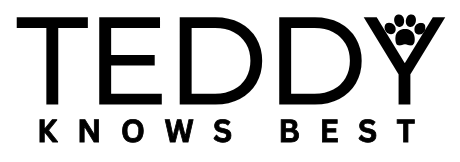Environmental & Sustainability Policy
Environmental Policy for Teddy Knows Best
Mission Statement
At Teddy Knows Best, we are committed to protecting the planet for the next generation of pets and their owners. We strive to create innovative, sustainable products that empower adventures while minimizing our environmental footprint.
Core Principles
- Sustainable Sourcing: Use ethically sourced, eco-friendly materials for all products.
- Eco-Friendly Operations: Reduce energy, water, and waste in our operations.
- Circular Economy Focus: Design products with recyclability, reusability, or biodegradability in mind.
- Community Engagement: Support local and global initiatives for environmental conservation.
Sustainability Plan
- Sustainable Product Design
- Materials: Transition to recycled, upcycled, or natural fibers like organic cotton, hemp, or recycled PET for leashes, harnesses, and travel gear.
- Packaging: Eliminate single-use plastics by using compostable, recyclable, or reusable packaging.
- Durability: Focus on creating long-lasting products to reduce waste.
- Carbon Footprint Reduction
- Manufacturing Partners: We work with suppliers who adhere to green manufacturing practices.
- Energy Use: Transition facilities to renewable energy sources.
- Shipping: Offer carbon-neutral shipping options and reduce packaging weight to decrease transportation emissions.
- Waste Management
- Implement a product take-back program where customers can send back used products for recycling or upcycling.
- Partner with recycling programs that specialize in textiles and pet accessories.
- Biodiversity and Conservation Support
- Donate a percentage of profits to organisations focused on wildlife preservation and reforestation projects, we work with Rewilding Britain
- Collaborate with initiatives promoting green spaces and dog-friendly parks.
- Employee and Customer Education
- Educate employees on sustainable practices within the workplace.
- Provide customers with tips on maintaining eco-friendly pet care and adventures.
- Regular Audits and Transparency
- Set measurable goals (e.g., becoming carbon-neutral by 2030).
- Publish annual sustainability reports to track progress and share achievements.
Sustainability Goals (2024-2027)
- Transition 80% of product lines to sustainable materials.
- Achieve zero waste in all packaging by 2025.
- Offset 100% of shipping-related carbon emissions by 2027.
